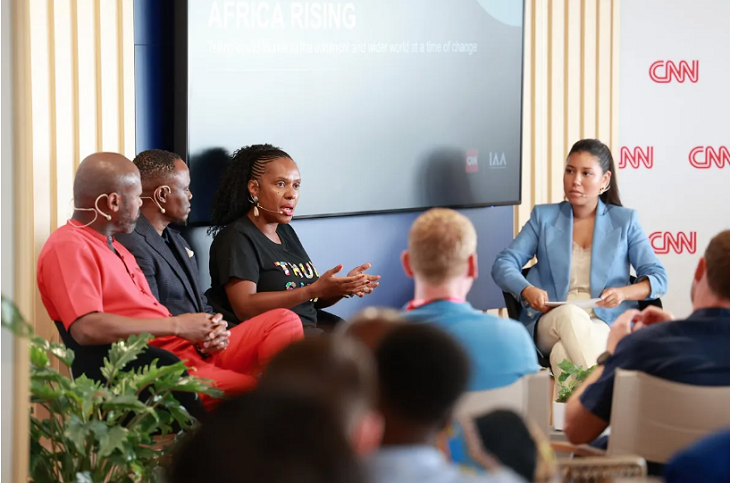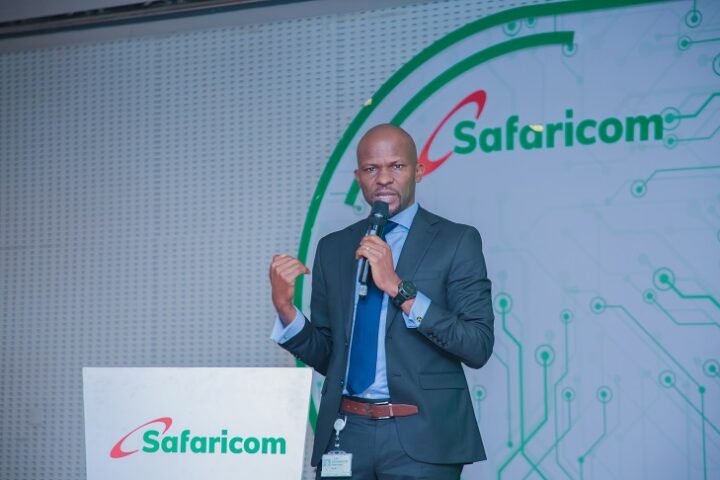Brands, companies, and nations had already started to communicate with audiences in new ways pre-pandemic, with a focus on engaging with customers and stakeholders on an emotional, rather than transactional, level.
There was a movement towards not just providing a value proposition to customers but for companies to embody and communicate values that people truly care about in areas such as the environment, or diversity and equality, or social justice and impact.
The COVID pandemic accelerated the way that people looked to corporations for leadership and a reflection of their own values. While we may be emerging from the pandemic, there are clear indicators that we will continue to live in uncertain times where ordinary citizens will be impacted by issues such as food security, rising energy, and food costs, inflation and economic volatility, and the increasing toll of climate change.
This continued period of dramatic change will require marketers to do things differently and truly resonate with their customers in order to create and nurture deep connections.
It was within this context that I was fortunate to moderate a panel discussion on the theme of ‘Africa Rising’ at the recent Cannes Lions International Festival of Creativity. This CNN conversation, held in partnership with the International Advertising Association, looked at how some of Africa’s leading CMOs are telling brand stories to the continent and the world during this time of change. Gathered together at the Warner Bros.
Discovery beach space was Africa Marketing Leader of the Year, Andisa Ntsubane, Nedbank Group Executive of Marketing & Corporate Affairs, Khensani Nobanda, and President of North America for South African Tourism, Jerry Mpufane.
Setting the stage for the discussion, the IAA’s World President & Chairman Joel Nettey played a rousing recording of Nkosi Sikelel’ iAfrika and cemented in our audience’s mind what Africa Rising actually means – “Africa Rising is not an event in time. Africa Rising is present and continuous. It’s Africa Rising all the time in spite of the challenges”, he said. While there are many angles to approach this concept (which the IAA will do in full at the Africa Rising Conference being held in Ghana this October), our conversation very quickly turned to the topic of ‘purpose marketing’ and what brands should be doing to help and reflect the needs of their employees, communities, customers and the countries within which they operate. As Joel put so eloquently, “brands have a role to play where the purpose is concerned, and consumers care about brands that care about more than just the bottom line”.
The panel was in agreement that purpose marketing has the power to drive connections but that it requires a story and it needs substance. Jerry Mpufane made the excellent point that all the research on South African Tourism shows that while visitors will admire the country, its safaris, its beaches, and its landscapes, there is one thing that stands alone as the number one reason why people fall in love with South Africa – “people, people, people”, he said. “You put humanity first, all else comes”. He explained how South African Tourism deliberately puts people at the center of their campaigns, with the essence of people inviting their “friends” from around the world to visit the country.
Putting people and purpose at the heart of your campaign requires an anchor point to give focus and provide outcomes. The highly experienced Andisa Ntsubane gave his view that “marketing functions that will be successful going into the future are those that can connect marketing to the SDGs (Sustainable Development Goals) in terms of impact.” This point was echoed by Khensani Nobanda, who agreed that building culture, values, and a customer proposition around the SDGs gives Nedbank focus in its work around impact and purpose. Her message was very clear: “we believe as a bank that we can’t be a sustainable organization in an unsustainable world”.
The context of the world around us is absolutely vital for any marketer focused on purpose. If there is a social justice movement that aligns with your values as a company and is important to your customers, more often than not your customers will expect you to take a position on it. However, any action must be authentic and meaningful – it can’t just be a badging exercise or an opportunistic move to be part of the latest fad. At CNN, we counsel our clients about the reasons why they want to conduct a particular campaign – whatever we and our partners do must be authentic. For Andisa Ntsubane, a company’s drive to stand for something and embody certain values must come from the top – “purpose should be owned by the CEO, not the CMO. It must be executive-led, not marketing-led”, he said. This is something that Jerry Mbufane agreed with – “if you’re running a business and you think ‘I am part of this community, I am part of the employee set, I take national pride, I fly the flag’ you think about things differently”.
There was clear agreement that African youth have to be central to purpose marketing and that they have a major part to play in Africa Rising. Khensani Nobanda is rightly proud of the work that Nedbank has done in putting youth development at the core of its purpose. She explained how the bank took on 3,000 young trainees as part of South Africa’s Youth Employment Service scheme. They learned skills on the job and 97% of them went on to get their first jobs after the scheme. This is a great example of a company with a purpose putting it into real action, as Khensani put it, “if we continue to have youth unemployment then Africa Rising won’t happen”.
At CNN, we have seen a global drive towards purpose marketing and we know from our data insight that there is an audience appetite to engage with stories and campaigns that they can emotionally connect with and that align with their values. Having worked with African brands for almost a decade now, I can confidently say that Africa can be at the forefront of driving change through purpose. The panelists were just as enthusiastic in articulating the opportunity that lies ahead. Telling stories to the world will be an essential component of this. Jeffy Mpufane captured this when he told me – “The world is looking for new stories across the sciences, across the arts. We have great examples of Africans doing great things across the world. You want to focus, engage with the continent, engage with the young people, engage with the African people. That’s where we can change the relationship of the continent with the rest of the world”.
We live in challenging times and the future may be unpredictable, but the message from some of Africa’s leading CMOs at Cannes Lions was positive and inspirational. A world where purpose matters is a world in which ‘Africa Rising’ is more relevant and important than ever before.









